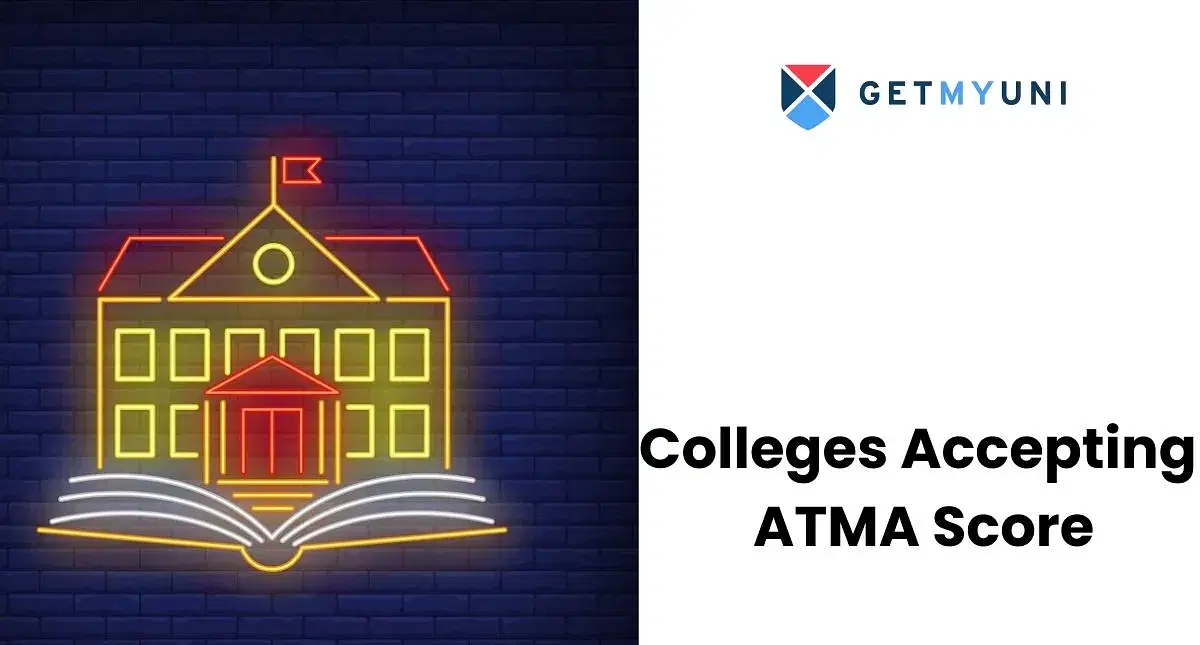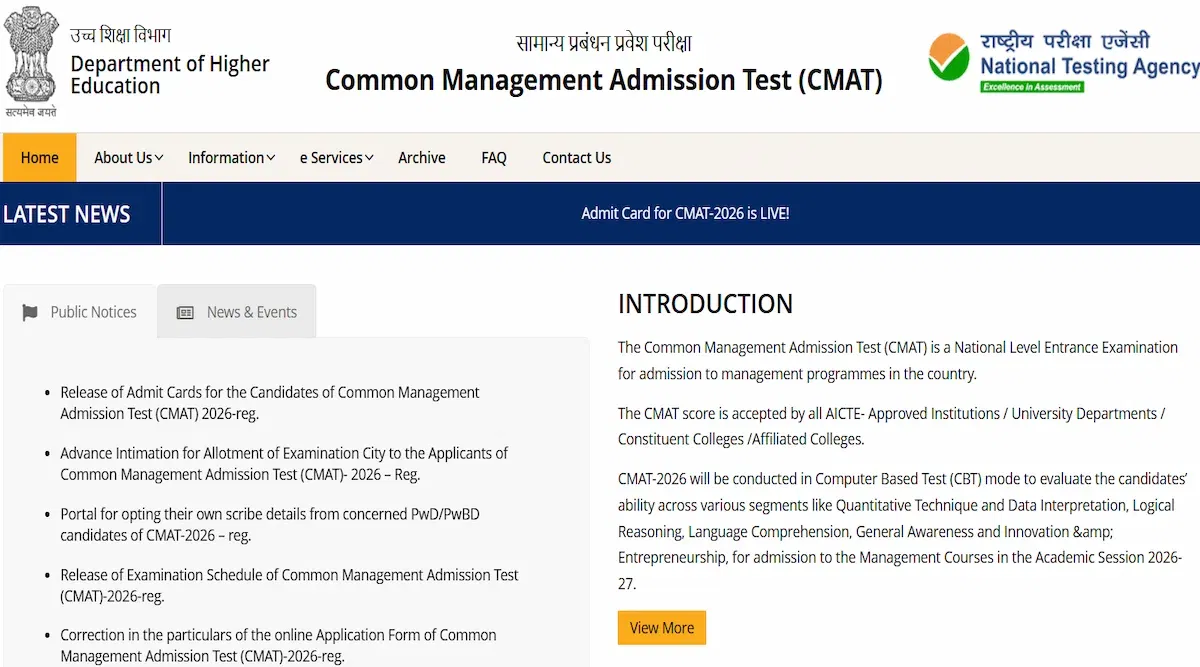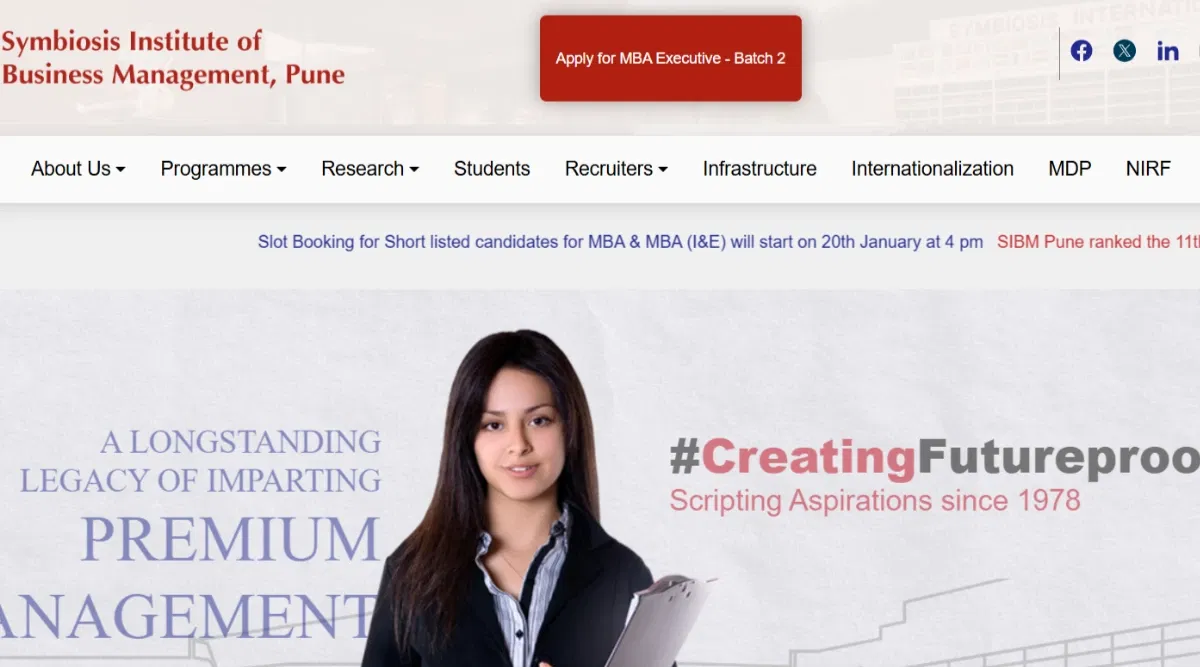The ones aspiring to seek admissions into management courses in India does not necessarily need to give the MBA entrance exams. There are some institutions which provide direct admissions in MBA colleges without entrance exams in 2025.
Table of Contents
- Direct Admission in MBA Colleges Without Entrance Exam
- Eligibility Criteria for Direct Admission in MBA Colleges
- Documents Required for Direct Admission in MBA Colleges
- What is Management Quota for Direct Admission in MBA?
- Direct Admission in MBA Colleges: State-wise List and Fees
- Pros and Cons of Direct Admission in MBA Colleges
- Checklist of Direct Admission to MBA Colleges
Jawaharlal Nehru Technological University, Sikkim Manipal University, Jaipuria Institute of Management, Apeejay School of Management, GD Goenka University, Andhra Loyola College and more are some of the colleges that provide direct admission to MBA without any entrance exam through management quota. These colleges have different selection process, such as, they select you based on your academic excellence, work experience, extra skills, and others.
Though many of the top mba colleges accept CAT scores, while others have their own management entrance exams. But if you are afraid of taking the entrance exams or could not score the minimum marks required, then you can opt for the MBA colleges without entrance exams.
Direct Admission in MBA Colleges Without Entrance Exam
Direct admission in MBA colleges without an entrance exam is not very complex in comparison to the other way of admission criteria. Direct admission in MBA colleges without an entrance exam is based on the past academic performance of the candidate, your work experience participation, next curricular activities, etc.
There are certain steps mentioned below that the candidate can follow for direct admission to MBA colleges:
- You need to register yourselves online on the college’s official website or go directly to the college for offline registration.
- After you register yourselves, you have to submit the required documents and your mark sheets, based on which you will be shortlisted and called in to proceed further.
- Some institutions conduct Personal Interviews and Group Discussions for admission.
- The ones going through direct admission will not be allowed to go for scholarships.
Read More: Top MBA Colleges Other Than IIMs
Eligibility Criteria for Direct Admission in MBA Colleges
You should know that the eligibility criteria for direct admission to MBA colleges are different from test-based admission. Mentioned below are some criteria that you have to qualify for admission.
- The general category should have scored a minimum of 65% in your graduation.
- For the reserved category, you should have a score of 45%.
- Indians, NRIs, and Foreign Nationals are also eligible for direct admission.
Documents Required for Direct Admission in MBA Colleges
You have to provide the necessary documents for verification and mark submission. Based on those documents, the college will reach out to a qualified candidate for direct admission. Mentioned below are the necessary documents required by the candidate for direct admission to MBA colleges.
- SSC (class 10th) mark sheet
- HSC (class 12th) mark sheet
- UG/Bachelor’s degree and mark sheet
- Identification proof
- Transfer certificate from the previous institution
- Passport-size photographs
Read More: Top Government Colleges with Low Fees
What is Management Quota for Direct Admission in MBA?
Numerous MBA universities in India have some level of seats saved for the board share. The institute's administration and upper management recommended that these seats be filled. Numerous colleges have an NRI quota as well. By placing an advertisement on the institute's website or in local newspapers, the Principal or Director of the respective unaided management institute can invite applicants for admission.
Direct Admission in MBA Colleges: State-wise List and Fees
There are plenty of colleges providing direct admission to MBA. Mentioned below are some of the top colleges in India and their fee structure.
MBA Colleges in Bangalore without Entrance Exams
You can check the given list below of a few top colleges in Bangalore that offer direct admissions for MBA
| MBA College | Fee Structure |
| Alliance School of Business | 15.38 lakhs |
| NSB Academy | 8.30 lakhs |
| Christ University | 12.91 lakhs |
| Indus Business Academy | 6.15 lakhs |
| Vanguard Business School | 5.75 lakhs |
MBA Colleges in Pune Without Entrance Exams
You can check the given list below of a few top colleges in Pune that offer direct admissions for MBA
| MBA College | Fee Structure |
| Ajeenkya D Y Patil University | 4 lakhs |
| Amity Global Business School | 2.8 lakhs |
| Indira College of Engineering and Management | 2.8 lakhs |
| Lexicon MILE | 8.3 lakhs |
| MITCON Institute of Management | 5.25 |
MBA Colleges in Delhi NCR without Entrance Exams
You can check the given list below of a few top colleges in Delhi & NCR that offer direct admission to MBA
| MBA College | Fee Structure |
| Bridge School of Management, Gurgaon | 2.75 lakhs |
| Asian Business School, Delhi | 6.75 lakhs |
| JIMS Rohini, Delhi | 8.70 lakhs |
| Apeejay School of Management, Delhi | 8.50 lakhs |
| Amity University, Noida | 18 lakhs |
MBA Colleges in Gujarat without Entrance Exams
You can check the given list below of a few top colleges in Gujarat that offer direct admission to MBA
| MBA College | Fee Structure |
| Narayana Business School | 7.95 lakhs |
| Auro University | 7 lakhs |
| Amrut Mody School of Management | 7.35 lakhs |
| Indian School of Business Management and Administration, Ahmedabad | 1 lakh |
| IBMR Business School, Ahmedabad | 4.95 lakhs |
Pros and Cons of Direct Admission in MBA Colleges
Everything coin has two sides, like a coin. If there is something good, then it will also have disadvantages. Direct MBA Admission colleges is an easy and less time-consuming step for students who do not wish to be admitted to branded colleges or appear for the entrance exam.
The ones going for direct admission want to upgrade yourselves with managerial skills. Some of the pros and cons of direct admission to MBA colleges are mentioned below:
Pros:
- You can join the MBA course right after graduation, while the entrance-based test takes almost a year.
- It is less time-consuming.
- You can start working early in the management sector.
- You can get into good private colleges by direct admission.
- You need not go through the admission process.
Cons:
- Direct admission does not grant the candidate admission to top colleges like IIMs.
- On-campus placements provide higher salary packages to those who opt for the entrance exam.
- Direct admission candidates get good placements, but the salary packages are low.
- The cost of direct admission to MBA colleges is high.
Checklist of Direct Admission to MBA Colleges
Direct admission to MBA colleges is easier comparatively since it involves very few steps and less time as there is no entrance exam preparation. All candidates interested in Direct Admission to MBA colleges must ensure and double-check the following points for smooth admission to the college of their choice.
- First, you need to be sure about the career option and then select the management course to be pursued and the preferred MBA college.
- Find out the details about direct admission to the MBA college of choice, and this can be done by logging into the website of the preferred MBA college.
- You can also visit the MBA college, which you wish to join and inquire about all admission formalities to get admission.
- Eligibility criteria, admission process, fees, infrastructure, placements, government recognitions for the college, etc., are considered while shortlisting the MBA colleges.
- The ones with MBA admission under the management quota are not eligible for scholarship schemes even if you belong to reserved categories.























POST YOUR COMMENT